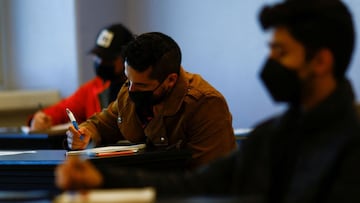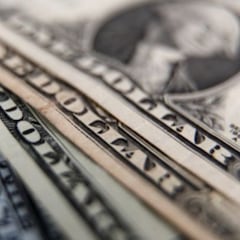Are private student loans on hold? Can private student loans be put on hold?
Payments and interest on federal student loans have been on pause since the covid-19 pandemic started, those with private student loans weren’t so lucky.

Those with federal student loans will have to begin making monthly payments again come 1 May. At the beginning of the covid-19 pandemic the Education Department placed a pause on student loan repayments and interest which has been extended five times since.
That extra bit of breathing room was not however extended to those who have private student loans when the CARES Act was passed in March 2020. Those loans function like home or car loans and it is up to the borrower to negotiate with the financial institution that issued the loan to get relief.
Also see:
- Personal finance and money news: live updates
- Average student loan debt in the US nears $40,000
- All you need to know about the 1040 tax filing form
- How much has Bitcoin devalued since its all-time high?
Although a minority of all student loans, private student loans draw more complaints
Private student loan debt has been increasing over the years rising just over 7 percent per year. By the start of the covid-19 health emergency, the overall outstanding amount had grown 71 percent in a little over a decade, outpacing growth in auto loans, credit cards, and mortgages.
Currently, private student loans are estimated to make up around 8 percent, just over $131 billion, of all outstanding student loan debt, now over $1.7 trillion. According to 2021 data, despite the overall number of complaints being down, complaints regarding private student loans received by the Consumer Financial Protection Bureau jumped from 28 percent in 2020 to 36 percent last year.
Navient, which recently reached a settlement with the Attorneys General of 39 states, received the most complaints in 2021. The settlement for $1.85 billion includes funding to repay legal fees, compensate borrowers, and fully cancel the debt of others.
If you are having issues with your student loan servicer, help hold servicers accountable by submitting a complaint with us at https://t.co/7gugkxrNou or calling (855) 411-2372. #PSLF https://t.co/qSE5UPXLzm
— consumerfinance.gov (@CFPB) January 26, 2022
Some states have reached an agreement to help private student loan borrowers
Some borrowers in ten states may be able to take advantage of an agreement negotiated by a coalition of state Attorneys General with several private loan companies. Borrowers that have encountered difficulties making payments due to complications imposed by the covid-19 crisis could potentially get up to 90 days of forbearance. In order to qualify, you must live in California, Colorado, Connecticut, the District of Columbia, Illinois, Massachusetts, New Jersey, New York, Vermont, Virginia or Washington.
The agreement applies to private student loans through the Federal Family Education Loan Program. You will need to check with your state’s student loan forbearance or forgiveness program and your loan servicer must be participating in the agreement. Your state may offer other forms of covid-19 related relief, it is always best to check with local agencies.
A new report indicates that as much as $50 billion in debt, colloquially referred to as private student loans and held by 2.6 million borrowers, could actually be wiped away in bankruptcy court. https://t.co/pKmMPFiK8l
— MarketWatch (@MarketWatch) January 21, 2022
Recourse for borrowers with private student loans
Related stories
Much like any other private loan, borrowers need to talk with their creditor to get debt relief. In most states the borrower is on their own if they need private student loan relief because of hardship they’ve encountered due to the covid-19 pandemic.
The Federal Trade Commission offers a guide to coping with debt. General recommendations are to work out a payment plan with your creditor by presenting your case and show that you have every intention of repaying what you owe. You can also consider refinancing the loan to get a better interest rate and lower monthly payments. Declaring bankruptcy is an option that can carry long term consequences for your credit rating, taking out future loans as well as when you apply for a job.
- Commercial loans
- Personal loans
- Covid-19 economic crisis
- Science
- University students
- Loans
- Coronavirus Covid-19
- Economic crisis
- Students
- Pandemic
- Coronavirus
- Recession
- University
- Academic community
- Economic climate
- Virology
- Outbreak
- Infectious diseases
- Higher education
- Credits
- Diseases
- Microbiology
- Education system
- Banking products
- Medicine
- Economy
- Finances
- Biology
- Health
- Life sciences
- Bank


